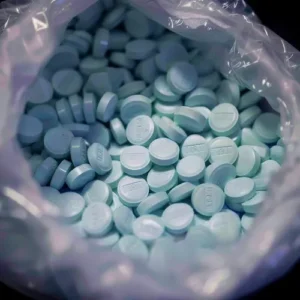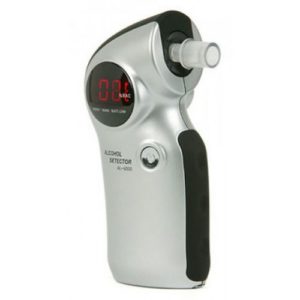Some of the most addictive drugs being used in the UK today are not illegal. In fact, getting hold of them can be as simple as calling in at your nearest supermarket, petrol station or pharmacy!
Some of the drugs can be quite beneficial and when used correctly, under a doctor’s supervision, they can also be very beneficial. However, because such drugs are also very addictive and relatively easy to obtain, a lot of people can end up abusing them and becoming dependent on them.
Alcohol
We are all too well aware of the risks associated with using alcohol. The drug itself can be as addictive as heroin or crystal meth, yet it is easily available and socially acceptable, making it hard to avoid for those that have a predisposition to addiction.
Regular binge drinking can cause addiction to alcohol. Some people seem to be more prone than others, with those that have a family history of alcohol dependence being most at risk.
For years there has been a worry that alcohol was an easy drug for young people to get hold of and to become addicted to. However in recent years there seems to have been a decline in drinking, as well as drug use and smoking, among secondary school pupils. Part of this decline can certainly be attributed to better education on the dangers of drug use, but there is no room for complacency.
Recent usage of alcohol can be monitored by a urine alcohol test. A saliva drug test for alcohol will detect current impairment from alcohol.
Oxycodone / Opioid Painkillers
Oxycodone is an opioid pain medication. Oxycodone has been dubbed “hillbilly heroin” in the US where abuse has been a widespread problem for a number of years now. The first UK death in relation to the use of the drug was reported as early as 2002. In the USA, opioid painkillers are sold under various brand names such as Vicodin, Percocet and OxyContin. Names for the drug in the UK include Endocet or Tylox.
Opioid painkillers are highly addictive as they are extracted from the same substance as heroin. In the United States particularly, prescriptions for the drug have grown massively in recent years and it is estimated that up to 40 people per day are killed as a result of an opioid overdose.
Cell receptors in the brain are bound together by opioids, which brings about pain relief. These drugs can also cause and euphoric effect. Regular use of such drugs can cause dependency which results in increasingly higher doses being needed to achieve the same effect.
Recent use of opioid painkillers can be detected by a urine drug test for opiates.
Benzodiazepines (Benzos)
Prescription drugs such as Valium and Xanax are often prescribed by doctors to treat severe anxiety and panic attacks. Often referred to as “Benzos”, there is genuine concern that these types of drugs are now being over-prescribed, leading sometimes to addiction.
As well as having a pleasant, sedative effect that can cause dependency, these types of drugs can affect work and daily tasks.
Benzos are similar to opioids, in that they need to be taken in greater quantities as the body gets used to them. Withdrawal from these types of drugs can be dangerous and potentially fatal, with seizures and heart attacks not being uncommon.
Benzos refer to prescription drugs like Valium, Xanax, and Klonopin. They’re used to treat severe anxiety and panic attacks, but many experts believe they are now being over-prescribed. They have a pleasant, sedating effect that can be very addictive. However, the drug affects functioning and performance, and can interfere with work and daily tasks.
Like opioids, the brain continues to crave more benzos as it acclimates to them. Withdrawing from benzos is dangerous and can be deadly; individuals may experience delirium tremors, seizures, or a heart attack.
Recent use of Benzodiazepines can be detected by a urine drug test for Benzos.
Codeine
Many medicines available in the UK contain codeine, an opiate drug that is highly addictive. Codeine is generally obtained from doctors as a prescription-only medicine. However it can be bought over-the-counter from pharmacies, when it is mixed, in lower quantities with other drugs, such as paracetamol, aspirin or ibuprofen.
Codeine abuse requires the drug to be taken in larger quantities to get the desired effect. Here the added risk is that the product being used may also contain other drugs, possible leading to a fatal dose of aspirin, ibuprofen or paracetamol.
Over the past few years, there has been a growing concern surrounding the improper and excessive use of codeine-based medications in the United Kingdom. Many individuals, seeking either immediate relief from pain or an intense feeling of elation, resort to these readily available drugs without fully comprehending the potential dangers and repercussions.
One peril that arises from codeine abuse is the development of tolerance. As one’s body grows accustomed to the drug’s effects, higher doses are necessitated in order to achieve the desired outcome. This can potentially steer users onto a treacherous path of increasing drug consumption, often leading to grave health complications.
Recent use of codeine products can be detected by a urine drug test for opiates.
Zolpidem
This sleep medication is very effective, however it is only too simple to become dependent on it. The drug is marketed under various brand names such as Ambien or Stilnoct. The drug is designed to only be taken for a short time. Once you start taking it, is is very easy to become dependent. those that take it regularly then find it impossible to fall asleep without it!
The drug has other drawbacks – It can make you anxious during the time you are awake. Also, you might do strange things while asleep, such as talking or even wandering outside.
Other side-effects of Zolpidem include amnesia and hunger Users have been know to wake up and raid the fridge for food or drive off in search of sustenance whilst under the influence of the drug.
Photo by Sharon McCutcheon on Unsplash
Zoom Testing is a leading UK drug testing company and a supplier of Drug Test Kits.
This post was originally published in 2014. It was last updated in July 2023.





